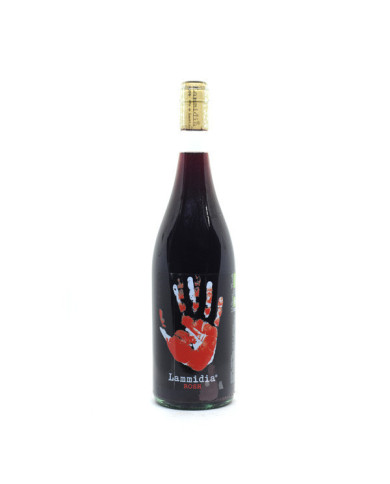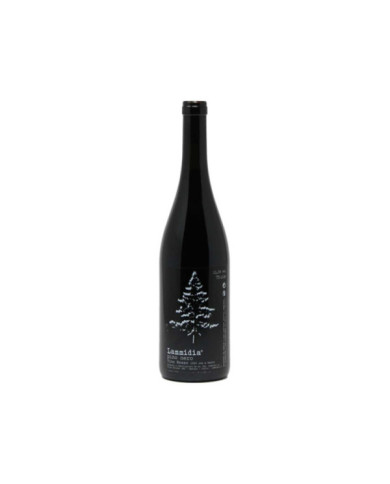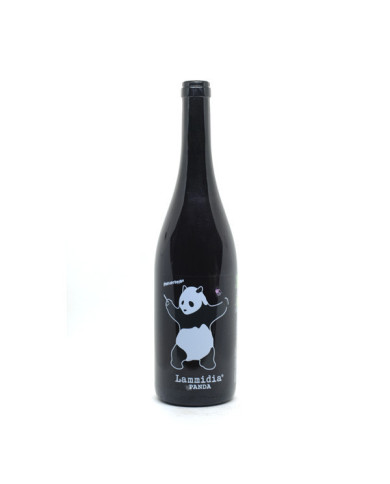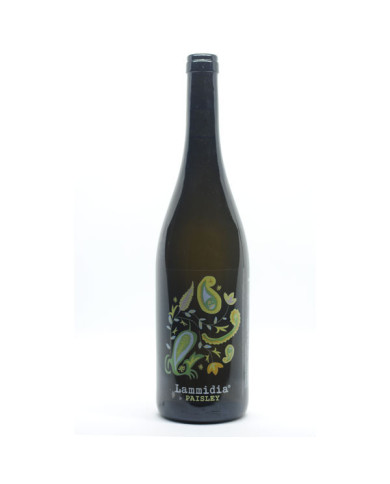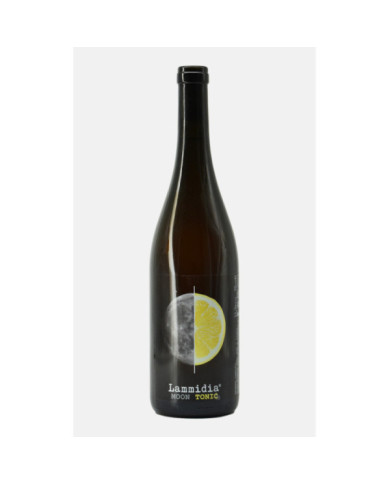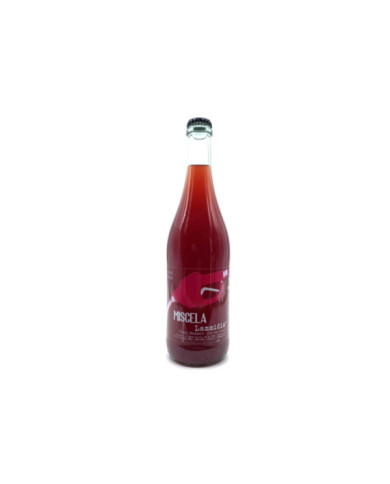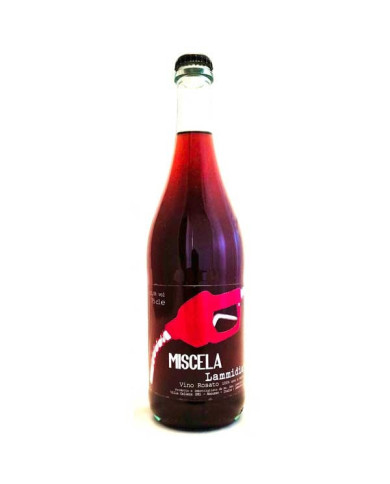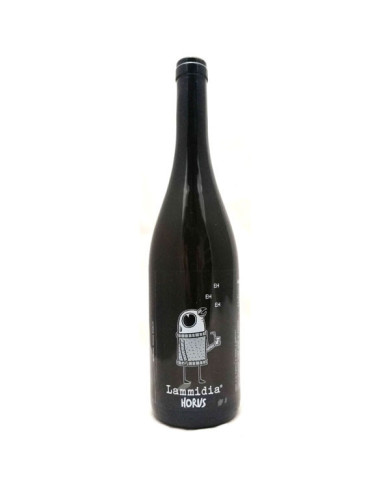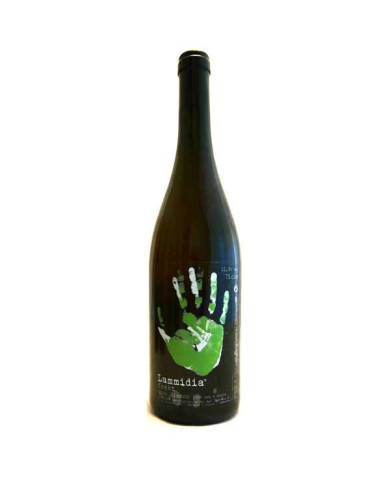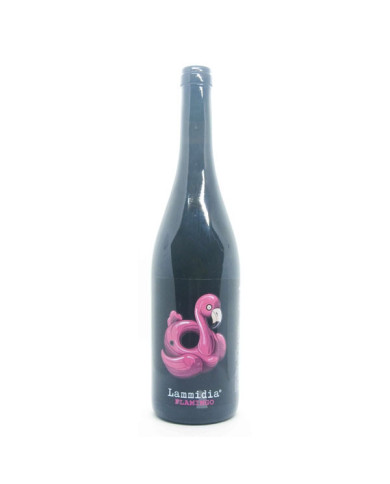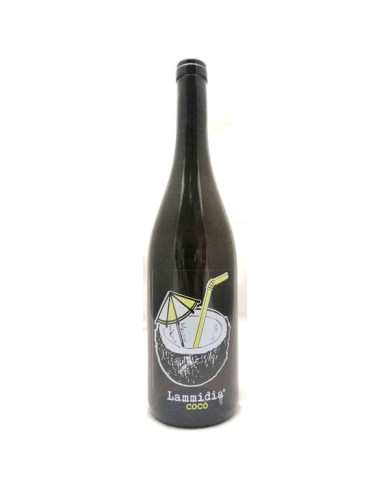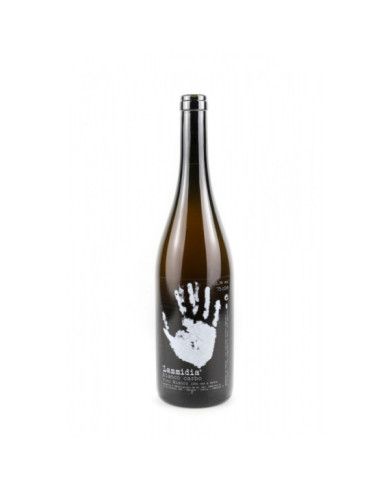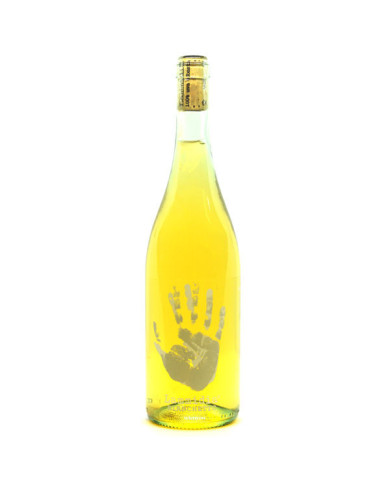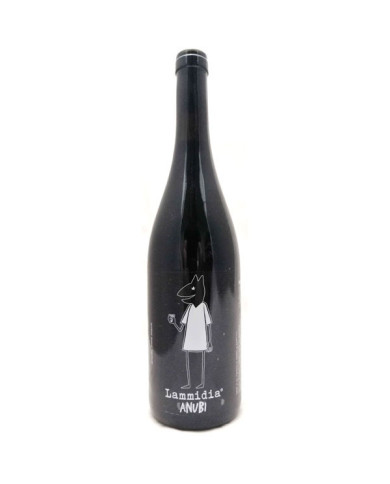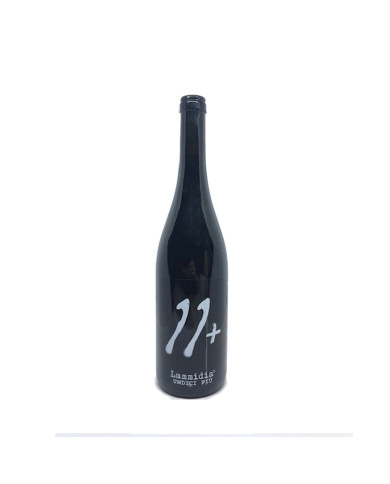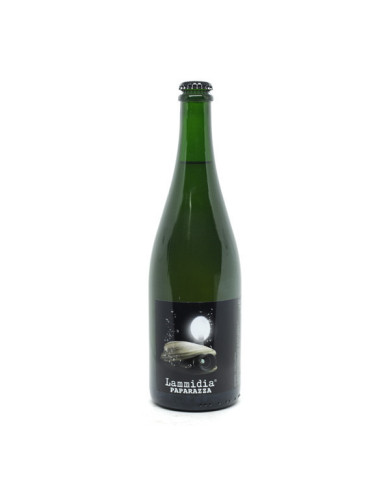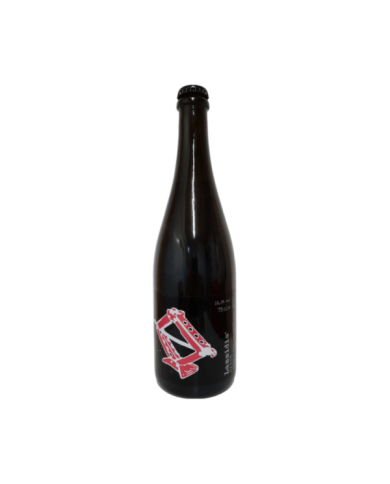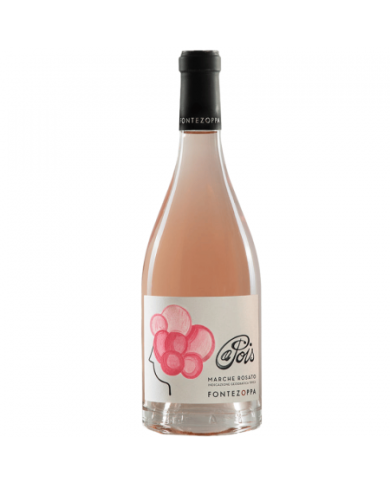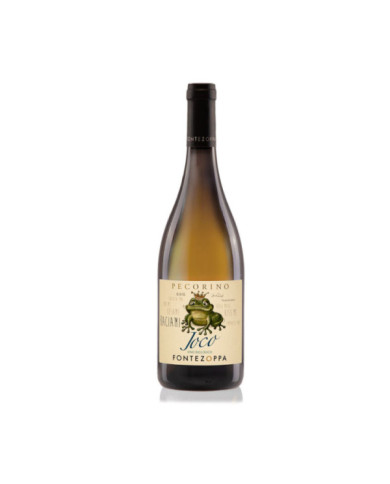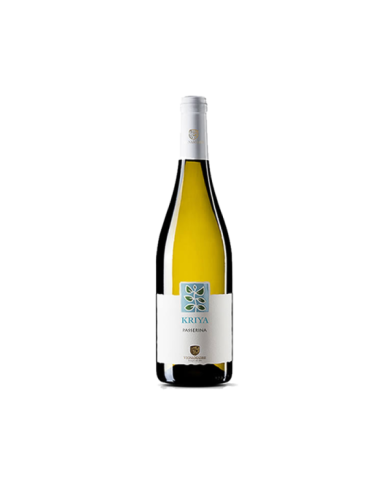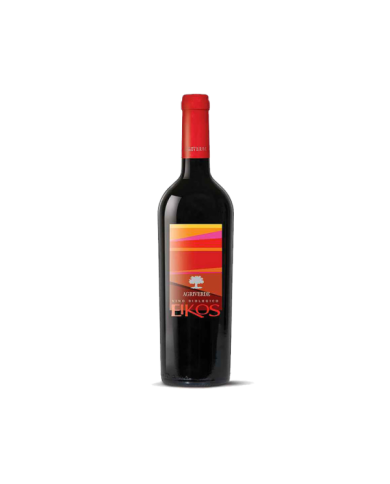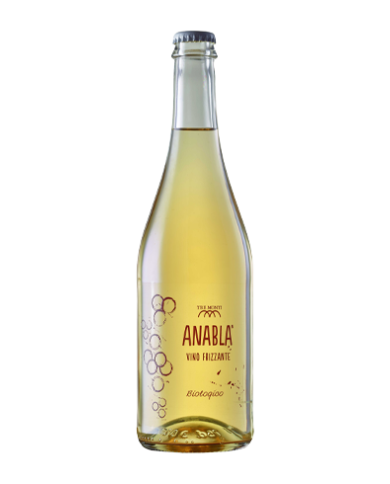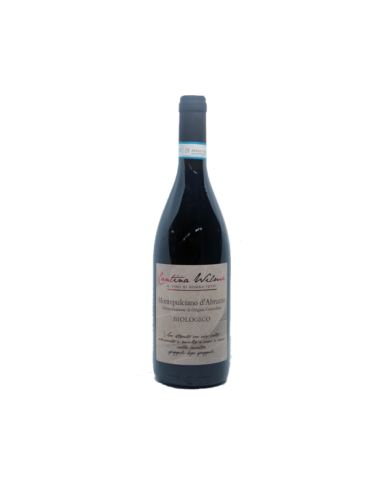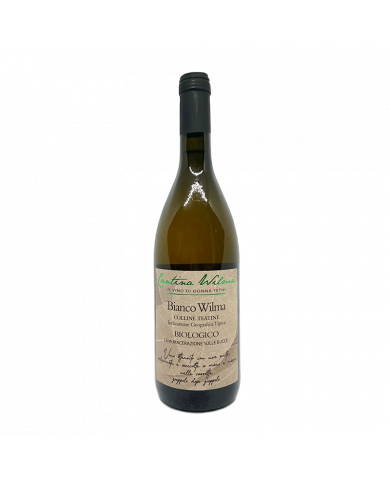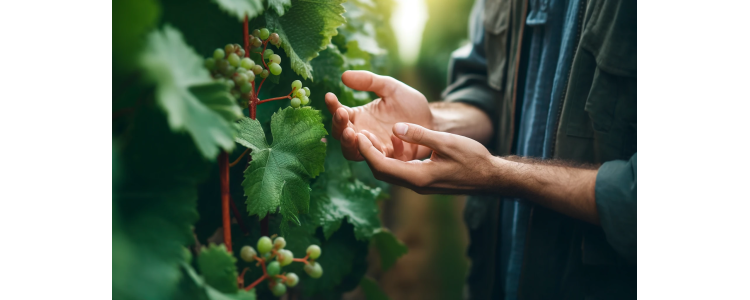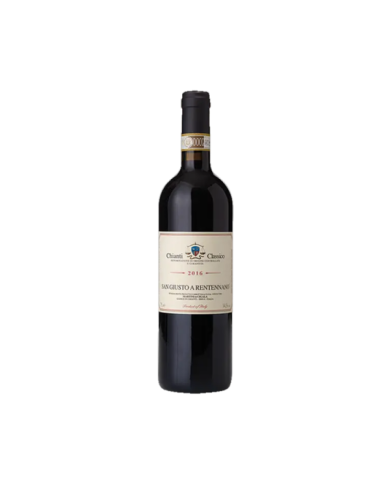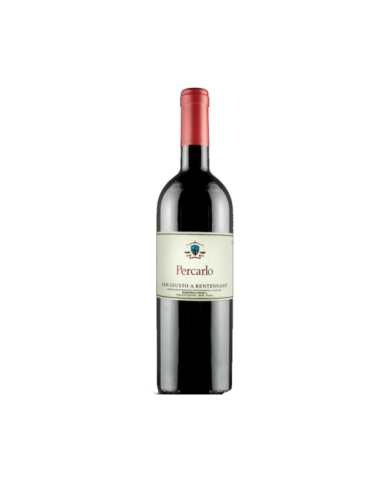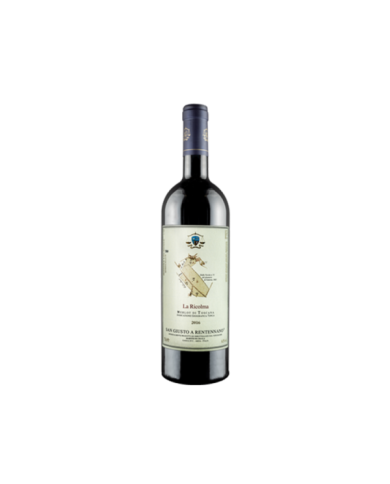Pino Nero is a red wine obtained from red grapes, fermented with semi-carbonic maceration. Spontaneous fermentation. Aging in fiberglass tanks. Without sulphites added before bottling. The result is a wine that gives the palate a great sensation of freshness and many fruit flavors.
Panda di Lammidia is a ros├® wine obtained from a blend of red and white grapes. The vinification takes place spontaneously in cement, while the refinement takes place in anofra. Panda is a fresh, fruity wine, with excellent minerality and drinkability.
100% Montonico, whole bunch carbonic maceration fermentation for a week in cement tanks, then pressed and refined in the same. A territorial grape juice with infinite drinkability! From one of the oldest grapes of Abruzzo here is a wine with super floral aromas and sensations, a slightly citrusy freshness and a lot of minerality! Vibrant like all Lammidia wines!!!
Frekt by Lammidia is a fresh and surprisingly drinkable white wine made from white grapes. The vinification is spontaneous, with half of the pecorino being pressed directly, while the other half is macerated for 2 weeks in concrete with a submerged cap, and then they are assembled and aged in fiberglass containers. Frekt is a wine that stands out for its freshness, its drinkability and rusticity, and its fruity hints. A wine that will make you definitively fall in love with Lammidia.
Anubi is a wine made from red grapes. The grapes are vinified with the carbonic maceration technique, throwing the whole bunches into a large concrete vat where they remain without oxygen for 2 weeks. The result is a wine with intense fruit aromas, great freshness and drinkability.
The first Dynamic Energy Vineyard (last patent by the Di Carlo family). Nature and man merge with the energy of colours... to improve biodiversity, the vitality of the soil, the positive frequencies on plants and fruits, people, animals and useful insects.
Intense ruby red with purple hues. The nose reveals intriguing varietal aromas of small black fruits, violets, licorice, vanilla and cocoa. In the mouth it is fresh and has an excellent structure with soft tannins and long persistence. Food pairings: cured meats, first courses of land, roast meats, game, aged cheeses.
A second fermentation in the bottle for our first ancestral one, however linked to the deeply rooted regional tradition of "mosso" wine. We like to call it a classic method ŌĆ” halfway..
Historic vine and our workhorse. Strong and gentle in character and softness (as it is also said of the people of Abruzzo). Obtained from native grapes and selected in the harvest. Plant in rows 1/2 height exposed to solagna on calcareous-clayey soil. Appearance of cardinal red color with purplish reflections tending to blue. Excellent and well structured. Fruity and spicy bouquet, intense flavor and good body. Ideal with grilled red meats and more, salami and aged cheeses.
Obtained from native grapes and selected in the harvest. Appearance of straw yellow color with greenish reflections. On the nose it is fresh and floral with notes of white berry flowers and balsamic notes on the aftertaste. Ideal with all seafood cuisine, it also goes well with appetizers and delicate main courses.
Taste the Authenticity of Natural Wines!
Natural wines are an increasingly popular choice among consumers, offering a unique and authentic taste experience. If you're looking to learn more about natural wines and how to try them, you've come to the right place. In this article we will look at what natural wines are, how they are made, and how they can best be savored.
What is a Natural Wine?
A natural wine is a wine produced without the use of additives, pesticides or other chemicals. Natural wines are produced only with grapes, water and yeast, and are produced in a way that best preserves the natural taste of the grape. They are also generally produced in small quantities which means that each bottle of natural wine is unique and offers a unique tasting experience.
How Are Natural Wines Made?
Natural wines are produced using grapes, water and yeast. The production process is very different from that used to produce conventional wines. The first thing to know is that natural winemakers do not use additives, pesticides or other chemicals. Instead, they try to work with the grape in order to best preserve its natural flavor, carefully choosing the plants and carefully tending the vines.
Once the grapes have been harvested, they are macerated for 12-14 days at a controlled temperature. This leads to a greater extraction of aromas and flavors which give the wine its rich complexity. The wine is then fermented in wooden barrels or concrete vats. This fermentation process is slow and can last from two to six months. Fermentation in wooden barrels gives the wine added complexity, while fermentation in concrete vats gives the wine greater freshness.
How to Taste a Natural Wine?
Savoring a natural wine is a unique experience that offers a rich complexity of aromas and flavours. To better enjoy a natural wine, it is important to prepare the glass properly. The glass should be rinsed with warm water and dried with a soft cloth to remove any chemical residue. Therefore, the glass should be filled up to half with wine to get a good oxygenation.
Once ready, take a sip of the wine and savor it slowly. Savor the color, aroma, taste and texture of the wine. Try to get all the aromas and flavors of grapes, like fruit, grass, hay, chocolate and so on. Also taste the complexity of the wine, feeling how the aromas and flavors evolve over time.
Conclusion
Natural wines are a great choice for those looking for an authentic and unique tasting experience. They are produced without the use of additives, pesticides or other chemicals, and are produced in a way that best preserves the natural taste of the grape. As we have seen, natural wines are produced with grapes, water and yeast, and are fermented slowly. To best enjoy a natural wine, it is important to prepare the glass properly and taste slowly, trying to capture all the aromas and flavours, and savoring the complexity of the wine. If you are looking for an authentic and unique tasting experience, try a natural wine!

